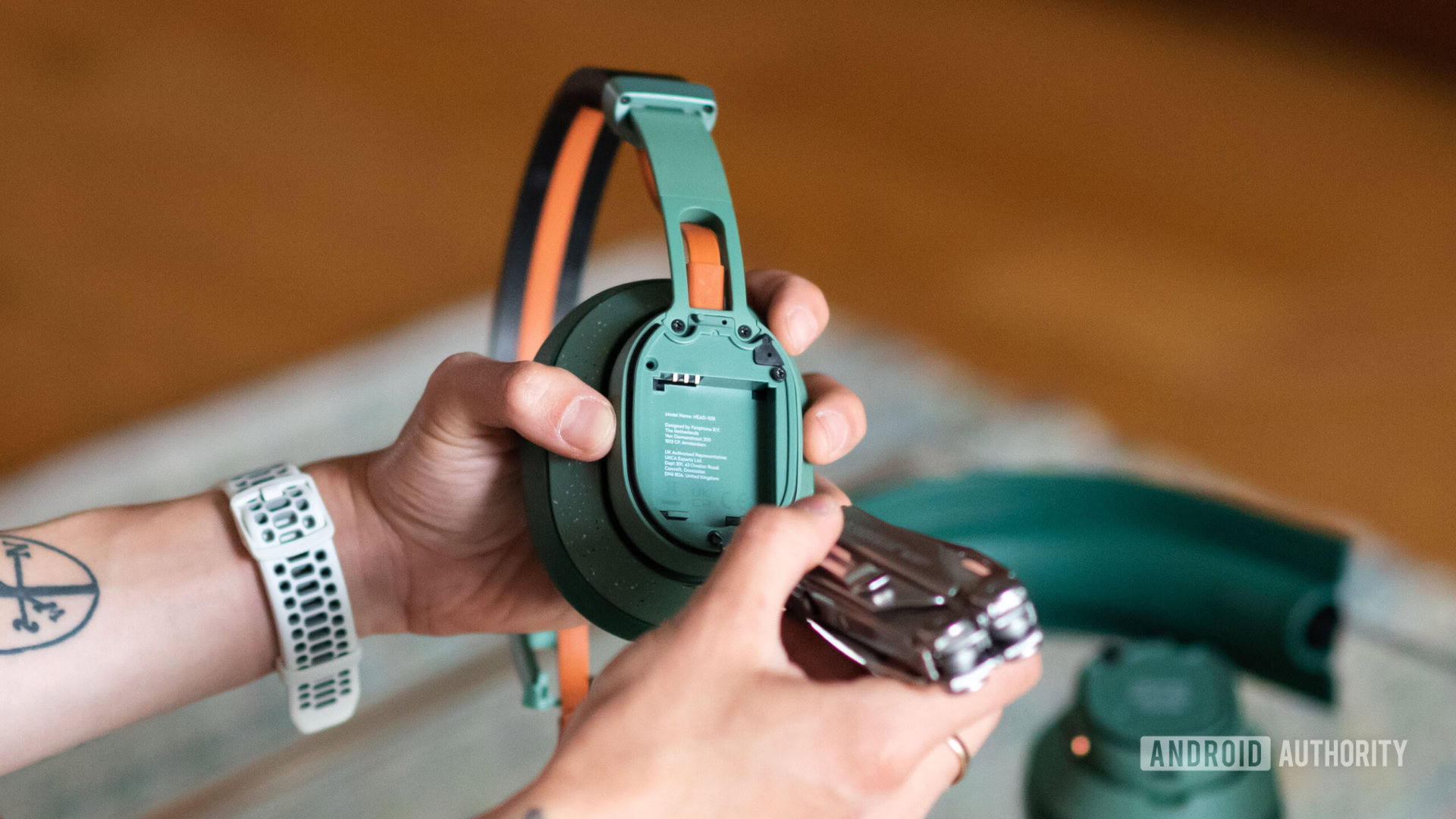Repairable headphones have been around for a while, but Fairphone is taking it to the next level with their Fairbuds XL headphones. These wireless headphones combine the right-to-repair movement with sustainability, and they also happen to look good.
I had the opportunity to try out the Fairbuds XL active noise canceling (ANC) headphones for a week, and I must say, I’m excited about the future of modular headsets. However, there are some trade-offs when it comes to repairable and sustainable headphones.
Fairphone stands out in the market by empowering consumers to fix and enjoy their electronics for longer. Unlike other companies that offer modular or repairable wireless headphones, Fairphone goes through the process of creating a sustainable product. The Fairbuds XL are made with 100% recycled materials, including aluminum, tin, polyester, and 80% recycled plastics. Fairphone even provides a mobile app for added convenience. However, it’s important to note that these headphones lack some features.
The process of disassembling and reassembling the Fairbuds XL is simple, but it can be time-consuming. Nonetheless, being able to replace the battery is a significant advantage. Instead of buying a whole new headset when the battery dies, you can simply order a replacement from Fairphone’s website. This not only saves you money but also helps reduce e-waste. Fairphone currently offers identical replacement modules, but they may introduce ear cup modules with different internals in the future to upgrade the Bluetooth capabilities and drivers. This opens up possibilities for DIY improvements as well.
Despite the disassembly, the Fairbuds XL headphones are durable. They have an IP54 dust- and water-resistant rating, which is impressive for headphones of this kind. This proves that repairable headphones can also be built to withstand various conditions.
Now, let’s talk about the cost. While flagship noise canceling headphones from other brands can retail for $300-400, the Fairbuds XL are priced at €240 (~$260). Although this might seem expensive upfront, over the course of five years or more, you would save money by replacing parts such as the battery, ear pads, and headband pieces for a fraction of the cost of a new headset. This makes repairable headphones a cost-effective choice in the long run.
However, it’s important to note that repairable wireless headphones will never be fully eco-friendly. Sourcing precious metals for batteries still has an environmental impact. Nonetheless, it’s a step in the right direction compared to regularly disposing of headphones and buying new ones.
When it comes to performance, the Fairbuds XL ANC falls short compared to headphones such as the Apple AirPods Pro 2 and Sony WH-1000XM4. The ANC is more comparable to cheaper headphones like the Anker Soundcore Space Q45. The sound quality is also different from mainstream headphones, with vocals sounding quieter and cymbal hits being more pronounced.
For repairable and sustainable headphones to truly appeal to the general consumer, they need to prioritize comfort and sound quality. Unfortunately, the Fairbuds XL didn’t meet my expectations in terms of comfort, especially when wearing glasses. The controls were also laggy, and there was a slight hissing noise when ANC was on but no music was playing.
Despite these drawbacks, buying headphones like the Fairbuds XL is a way to support the move towards sustainable electronics. Repairable headphones have numerous benefits, such as lower long-term costs and the potential for modular upgrades. However, in terms of performance, app features, and comfort, there is room for improvement.
In conclusion, the Fairbuds XL and future repairable headphones have the potential to be the last headphones you’ll ever need. To make an eco-friendly choice today, consider wired headphones or earbuds with replaceable parts. Sennheiser and Beyerdynamic are renowned for their well-built and repairable headphones, while Fairphone is leading the way in sustainability. Remember, it’s always best to reduce, reuse, and recycle whenever possible.
Denial of responsibility! SamacharCentrl is an automatic aggregator of Global media. In each content, the hyperlink to the primary source is specified. All trademarks belong to their rightful owners, and all materials to their authors. For any complaint, please reach us at – [email protected]. We will take necessary action within 24 hours.

Deepak Sen is a tech enthusiast who covers the latest technological innovations, from AI to consumer gadgets. His articles provide readers with a glimpse into the ever-evolving world of technology.


